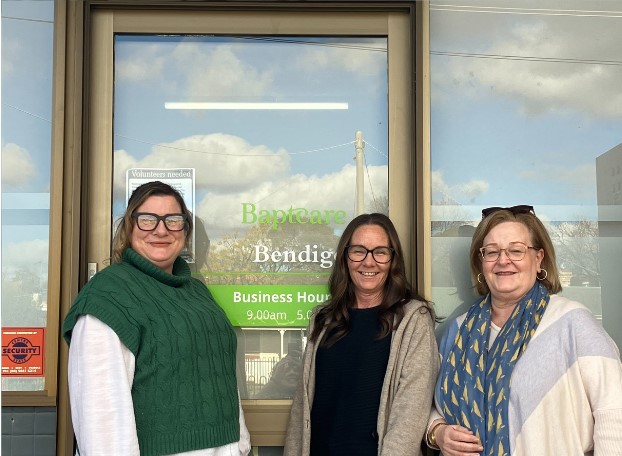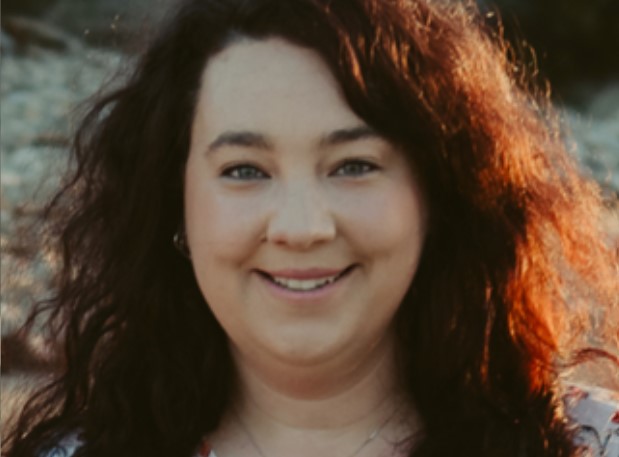Baby joy for Karen and Garry
- 09 Sep 2019

New to foster care, Karen, 50 and Garry, 58 recently added to their family of six, with a baby boy who they fostered for 10 months.
The Audley’s, who live in Altona, decided the timing was right to become foster carers as their own four children, aged 25, 23, 22 and 17, were now all grown.
“It’s something we have been thinking about for many years. We have always enjoyed having kids around and the timing was finally right for us to be able to foster,” said Karen.
“Having retired three years ago, it was a great opportunity for us to give something back. We love having kids around as they bring so much joy. Having worked so much when my own children were born, this was a great opportunity for me to get involved and give back,” added Garry.
Karen and Garry started working with Baptcare in February last year and were accredited in June 2018.
“We have worked with Baptcare for the last 12 months, after being given a list of providers located in the western suburbs by Foster Care Australia. Having had a past affiliation with the Baptist Church, Baptcare just felt right for us,” said Karen.
“Our experience so far has been extremely positive. We instantly became part of an extended family. After our training and four home interviews Baptcare also became part of our family and really got to know our kids making the whole process very easy,” said Garry.
Karen and Garry received their first foster child in October 2018. Felix* came to them at four months of age as a result of his young mother being in an abusive relationship and did not have the support available to care for him by herself.
“Felix had never lived with his mum or dad; he went straight from the hospital to kinship care where he was removed due to safety concerns through protection services,” said Karen.
“We got to spend 10 months with him and enjoyed so many of his milestones – crawling, walking and his first birthday. He was such an easy going, happy child despite his dislike of sleep. We will treasure those moments for a long time,” said Karen.
“When the time came to say goodbye, despite how hard it was, we knew that he was going to a good home, and transitioning to another foster family who already had his half-brother in their care, and whom was looking at permanently fostering both of them,” said Garry.
Karen and Garry say being foster carers is highly rewarding.
“Seeing Felix happy and knowing we could give him a loving environment that he could thrive and develop in was so satisfying,” said Karen.
“We saw such a dramatic change in Felix from when he came to us to when he left, he was just so happy and content, and we take comfort in being able to do that for him. He also did a lot for us as a family. Our entire family enjoyed him, and he brought a bit of life back to us,” said Garry.
Karen and Garry, who are committed to a short term and emergency foster care arrangement, are currently awaiting another child to foster and highly recommend foster care to anyone considering getting involved.
“If you are considering it, do it for the kids. We’ve got memories that we will treasure, and the children have an opportunity to grow in safety,” said Garry.
This week (September 8-14) is Foster Care Week.
Baptcare celebrates and appreciates our pool of amazing foster carers and the invaluable contribution they are making to the lives of vulnerable children and young people and the community as a whole.
People interested in becoming a foster carer with Baptcare can phone 13 22 78 or visit www.baptcare.org.au
*name has been changed to protect the individual’s identity.
Community news
-

Team Spotlight: Home Start, Mother Goose and Supported Playgroup Team in Bendigo
Baptcare runs the Home-Start, Supported Playgroup, and Parent-Child Mother Goose Programs in Bendigo. Jane, Home-Start Team Leader; Angie, Group Facilitator, Mother Goose Program and Supported Playgroup; and Jess, Group Facilitator, Mother Goose Program and Supported Playgroup, are our wonderful team members, dedicated to helping families and connecting them with strong support within the local Bendigo and Macedon Ranges communities. Keep reading to learn more about these exceptional employees, their work, and why they love what they do.
- 30 Jan 2026
-

Staff Spotlight | Lois Yamuta – Project Lead, Living Well Together
What inspired you to work in aged care and how did you come to lead the ‘Living Well Together’ program? My career in aged care started in New Zealand. I was studying Healthcare Management, where I was also introduced to aged care nursing, and the rest is history!
- 28 Jan 2026
-

Staff Spotlight | Belinda Evans – Baptcare Scholarship Winner
At Baptcare, we believe that investing in our people is the key to our shared success. That’s why we’re proud to offer the Baptcare Scholarship Program, providing up to $2,500 to support permanent employees, both full-time and part-time, in pursuing further education and professional growth.
- 27 Jan 2026
